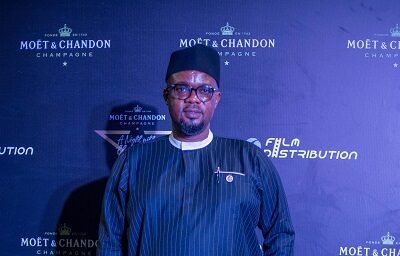Nigerian Actor and Director, Charles Inojie, has narrated how his parents abandoned him as a child, living a life of poverty, deprivation, and isolation, and grieving the passing of Ada Ameh.
The Nollywood actor in an interview with Chude Jideonwo, host of #WithChude shared his journey into acting and what he thinks about the synergy between the old Nollywood and the new Nollywood.
He also shared how his old film with the trend, ‘Costa Rica’, was mentioned by the Costa Rican government and his role as a director in major projects.
On this episode, he shared his work with other veterans like the Late Sam Loko-Efe, Nkem Owoh and Mr. Ibu
“Directing has always been there for me. In theatre arts, you are trained in everything. You are told to major in your third year, I majored in Play writing but before then I already had a certificate in acting.
“Most directors are good actors. Upon graduation, Lance adopted me as his AD, a lot of the work in the early to mid 2000, we did together. My training was complete under the tutelage of Andy Amaenechi, Fred Amata, and others. So, nothing was going to stop directing from happening,” hde disclosed.
On the passing of Ada Ameh, his partner in The Johnsons, Charles said, “Plenty of us failed Ada too”.
He further spoke about his relationship with the deceased on the set and why the passing was a lot he had to accept as reality.
He further spoke about his relationship with the deceased on the set and why the passing was a lot he had to accept as reality.
“Since she left the show, I have suffered a kind of loss that is irreplaceable. Her demise was strong enough to kill the show, from the cast, crew, and production company. But we sat down and agreed that the best way to honour her memory was to continue the show because we knew how much she loved ‘The Johnsons’.
Charles Inojie shared how he grew up without parental care, “I didn’t know my grandmother was not my mother until I was in Primary 4, when I saw that other children had younger parents. Then, I was told they were in Lagos.”
He shared how he was later sent to Lagos to meet his father abruptly because his grandmother wanted him to have access to better education.
“Since I was born, I’ve only lived with my father for eight months. From the day I landed till I left; it was all trouble. At one point, my stepmother said my father should make a choice between her and me. Since that year till today, I’ve been on the street. We’re almost like strangers but I love him. When I finally got admission to the university, I returned to the house to inform my father.
“My stepmom laughed and told my father that I would have to wait for her child (I am almost 20 years older than the child) to resume university before I can proceed. That she wouldn’t work for another person’s child.”
“When I entered UNIPORT, it was not with the intention of graduating. I just wanted to start to show that I could pass the exams, because I couldn’t afford to fend for myself. But when I got there, I met other people who were like me, and thankfully I met them very early. That was when I knew that you really didn’t need people to succeed in life, you need you,” he added.
On reconnecting with his parents, he shared, “When I did my first job in 2000, I went to look for my father. It was one of his friends that told me where he worked. As I got there, I met his colleague, and I told him I’m Gabriel Joba’s son and he said “Son? How come he get big boy like this, and he has never spoken about it?” So I said, ‘Ok, tell him Charles is here’. He came back and said, ‘are you sure of what you’re saying? Because he said he doesn’t want to see you’. I said ‘well, I’m not leaving, tell him I’m here to see him.’
So, I met him. We sat for close to 30 minutes and nobody was talking. I was crying, he was crying. Then I said ‘well I have to start going. But I have finished school. I was told that when you started working, your father should pray for you. And he said he was not going to touch the money that his conscience would not let him, having not contributed a dime. Then his friends said, ‘did you write a letter to this guy to send you money? He did this of his own volition.’ So I knelt down, he prayed for me, I cried, he cried and we left.”
He also shared about when his mother finally came looking for him, far into adulthood.
“At that time like I said, my skin was tough,” he says. “I saw this woman cleaning her eyes, and I said, ‘this must be my mother’. If she is, I mean it’s nice to meet you, but I don’t know why she’s crying. If she expects that I’ll cry and then we’ll hold each other, I’m not going to do that.
“Because too many things have happened. There are no more tears. We became close after that, and my kind of person, when I forgive, it is total,” he said.
